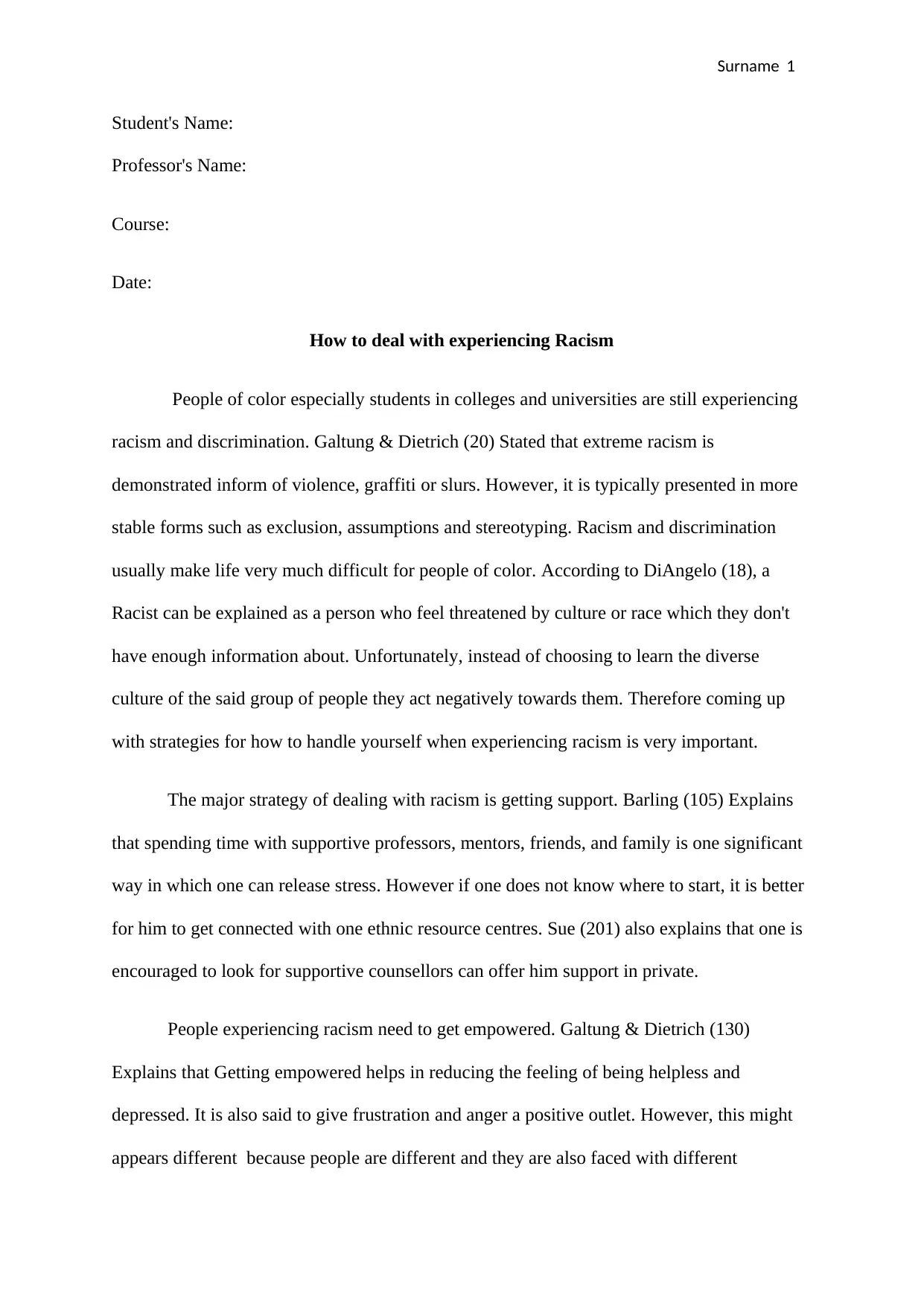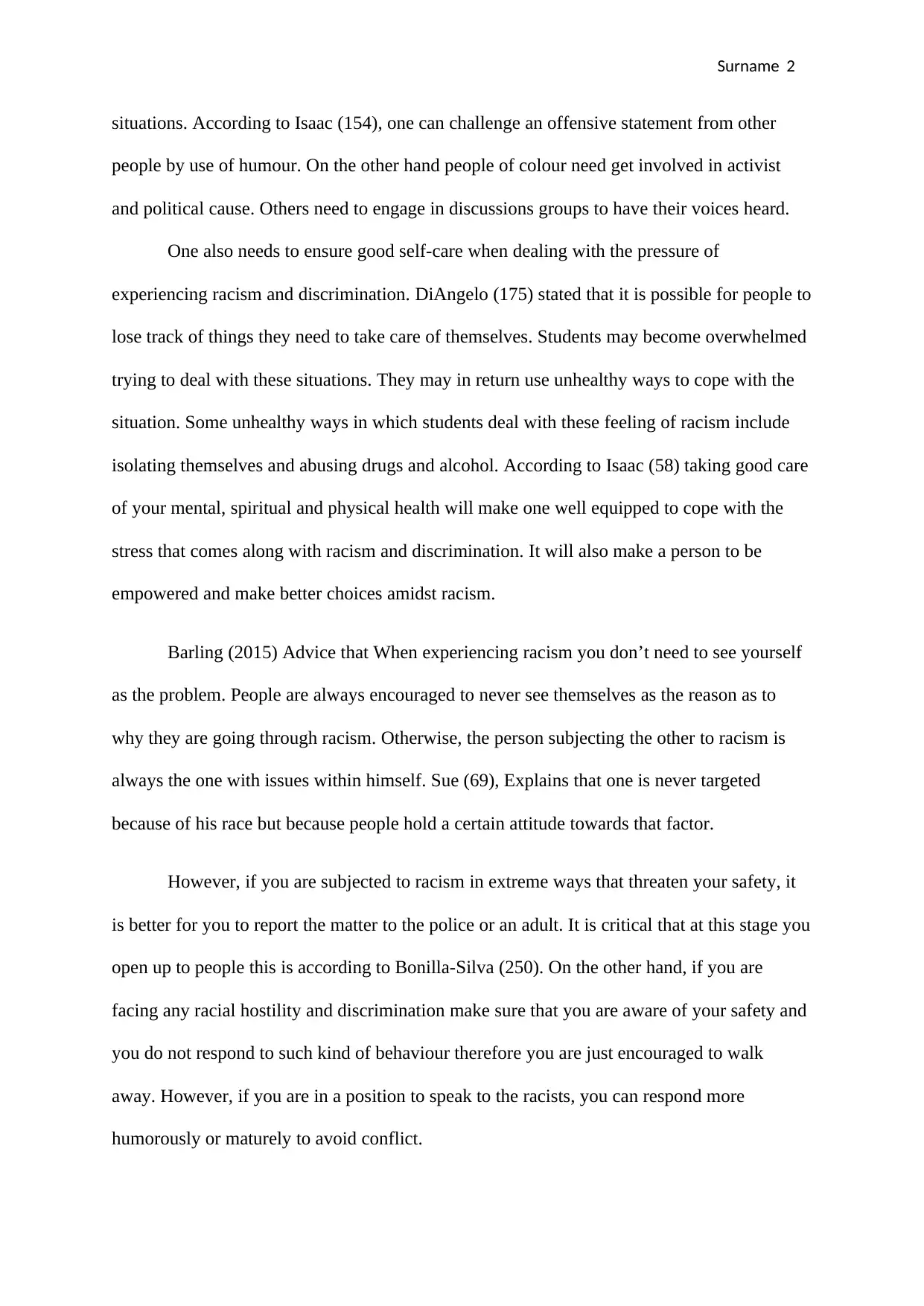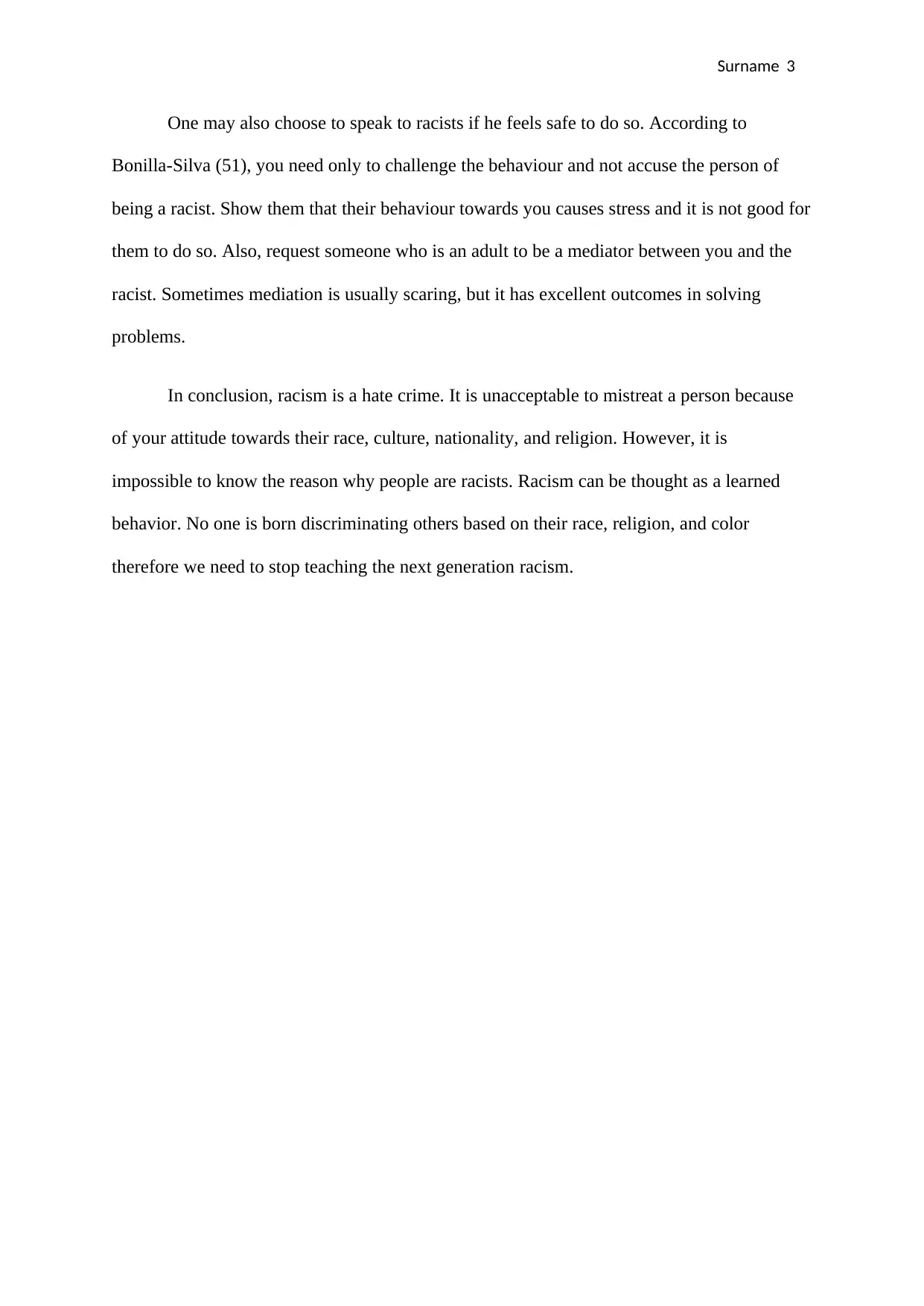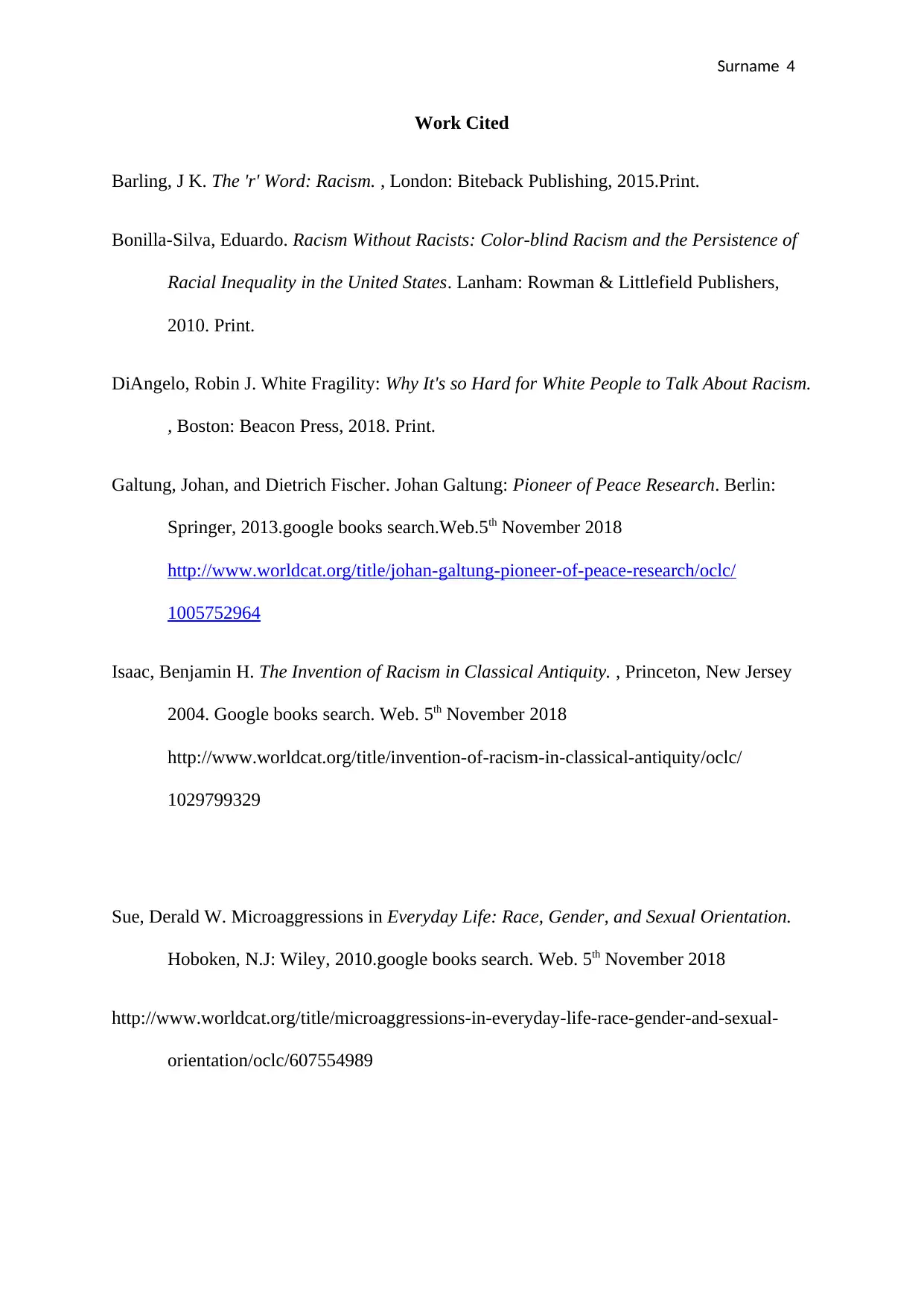Strategies for Dealing with Racism and Discrimination in University
VerifiedAdded on 2021/09/27
|4
|1050
|79
Essay
AI Summary
This essay addresses the pervasive issue of racism and discrimination, particularly as experienced by students in colleges and universities. It highlights that while overt acts of racism like violence and slurs exist, racism often manifests in more subtle forms such as exclusion, assumptions, and stereotyping. The essay emphasizes the importance of developing strategies to cope with these experiences, including seeking support from professors, mentors, friends, and ethnic resource centers. It also underscores the significance of empowerment, self-care (mental, spiritual, and physical health), and, when appropriate, challenging offensive statements or behaviors. The essay encourages individuals not to internalize racism and to report extreme cases of threats or violence. It concludes by emphasizing the need to challenge racist behavior and the importance of fostering a culture of respect and understanding to combat racism's learned nature. The essay draws on the work of several scholars, including Barling, Bonilla-Silva, DiAngelo, Galtung, Isaac, and Sue, to support its arguments.
1 out of 4





![[object Object]](/_next/static/media/star-bottom.7253800d.svg)